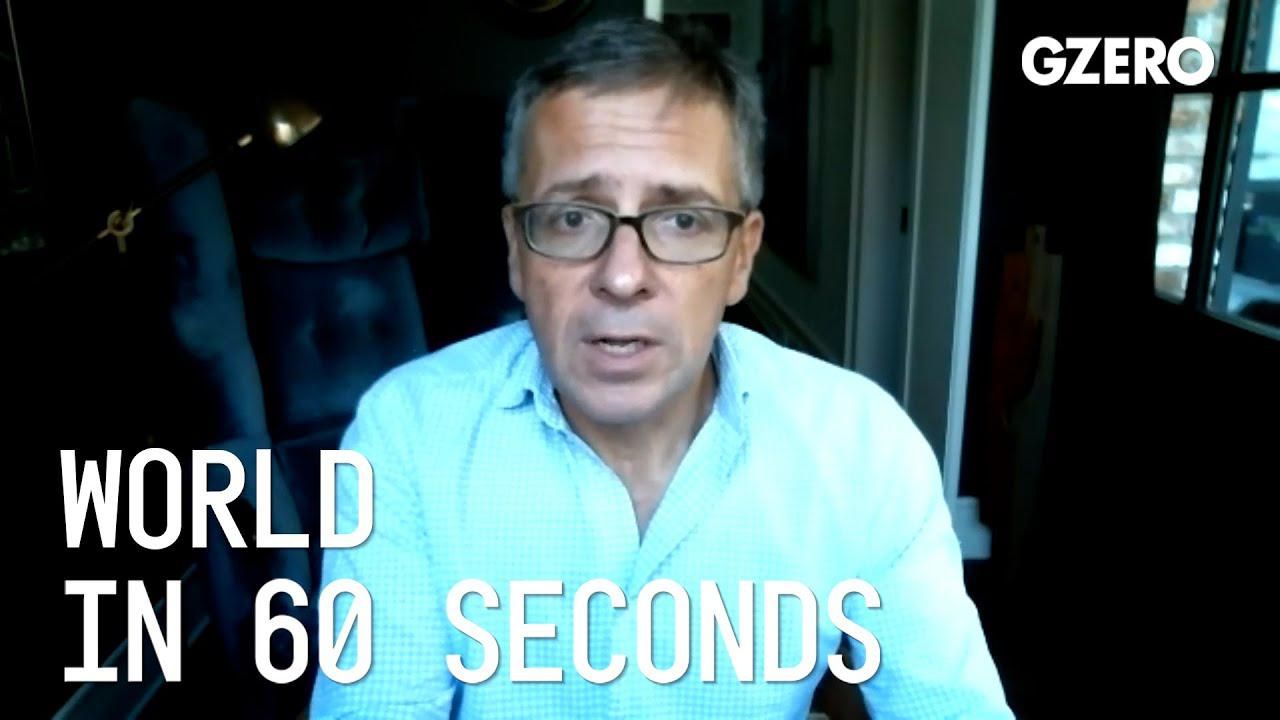
Ian Bremmer shares his insights on global politics this week with a look at the China-US economic relationship, North Korea's missiles tests, and the New York Times' investigation of the US drone strike in Afghanistan.
China owns more than $1 trillion US debt, but how much leverage do they actually have?
I mean, the leverage is mutual and it comes from the enormous interdependence in the economic relationship of the United States and China. And it's about debt. And it's about trade. It's about tourism. It's about sort of mutual investment. Now. There is some decoupling happening in terms of labor, increasingly moving domestic in terms of the China five-year plan, dual circulation focusing more on domestic economy, and in terms of data systems breaking up, the internet of things, being Chinese or American, but not both. And indebtedness is part of that. But I don't see that unwinding anytime soon. And certainly, the Chinese knows if they're going to get rid of a whole bunch of American debt, they wouldn't be as diversified in global portfolio. Not as great, it's much riskier. And also, the price of those holdings, as they start selling them down would go down. So, I don't think there's a lot of leverage there, frankly. I think the leverage is interdependent.
North Korea tested new long-range cruise missiles. What message is Pyongyang trying to send?
Well, they're medium-range missiles. They don't have the ability to hit the United States. And if you remember in the early Trump days, that was the red line. It also started reprocessing at Yongbyon, again their facility; that is, they had stopped that. I mean, clearly this is a couple of incidents where Kim Jong Un is angry that he's not getting engagement in any sanctions reduction from the Biden administration. Certainly no bilats, and so he's pushing a little bit. He wants more attention and he's going to get it from the Biden administration, but I don't think he's going to get much of a negotiating stance change. And in that regard, I would expect at some point more saber-rattling from Kim Jong Un. Maybe that could be more destabilizing. But what we're seeing right now are very early days.
What was revealed in the New York Times' investigation of the US drone strike in Afghanistan?
Well here, this is an ugly one. I mean, this is 10 Afghan civilians who were killed in this drone strike by the United States. President Biden, and seniors in the administration, and the Joint Chiefs, Milley, and others said that this was a strike that got a suicide bomber who was about to attack the United States and Afghan civilians at the Hamid Karzai International Airport. That was not the case. That information was faulty. The trigger finger was too quick. And as a consequence, the last act on the ground of the Americans at a 20-year war in Afghanistan was killing a bunch of civilians. It's horrible. Certainly, accountability needs to be made. The New York Times did a fantastic job of forensic investigating on the scene. They had to be applauded. Surprised it hasn't gotten more news, frankly, more coverage. Broadly though, now the US troops are all gone in Afghanistan, we are not spending as much time talking about it. So, but we still will, here at GZERO.
- As US-China rivalry intensifies, Biden looks to Southeast Asia ... ›
- China takes a “rare” swipe at the US - GZERO Media ›
- The Graphic Truth: Was the US war in Afghanistan worth it ... ›
- North Korea's Kim Jong Un vows to boost military capabilities at rare ... ›
- Record US inflation levels worsen Americans' view of the economy - GZERO Media ›
- The Graphic Truth: This day dwarfs Black Friday - GZERO Media ›